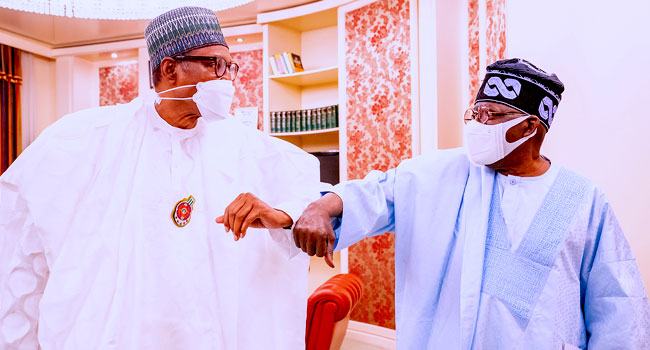
The possibility of the review was made known to Channels Television on Wednesday by the Chairman of the House of Representatives Committee on Appropriation, Abdulmumin Jibrin.
Nigeria’s 2016 budget had been submitted to the National Assembly in December by the President, with a benchmark of $38 less than the current crude oil price.
This price per barrel has triggered comments about how realistic the budget proposal of 6.07 trillion Naira, with 2.22 trillion Naira deficit and a crude oil benchmark of $38 was.
But on Monday, the Minister of Budget and National Planning in Nigeria, Senator Udo Udoma, tried to allay Nigerians fears, assuring them that the falling crude oil price would not affect the nation’s 2016 budget submitted with the oil benchmark of $38 per barrel.
Senator Udoma spoke at a meeting with members of the National Assembly Committee on Budget and Planning.
He told the lawmakers that there was a plan to cushion all shortfalls that may arise as a result of the drop in oil prices.
According to him, part of the plans would include concession of airports and re-introduction of toll gates on the nation’s highways.
Budget Breakdown
| GDP Growth Rate Projection | 4.37% |
| Revenue Projection | 3.86 Naira |
| Deficit | 2.22 trillion Naira (equivalent to 2.16% of Nigeria’s GDP) |
| Oil Related Revenues | 820 billion Naira |
| Non-oil Revenues | 1.45 trillion Naira |
| Projected Independent Revenues | 1.51 trillion Naira |
| Capital Expenditure | 1.8 trillion Naira (30% of total budget) |
| Works, Power and Housing | 433.4 billion Naira |
| Transport | 202.0 billion Naira |
| Interior | 53.1 billion Naira |
| Special Intervention Programs | 300 billion Naira |
| Education | 369.6 billion Naira |
| Defence | 294.5 billion Naira |
| Health | 221.7 billion Naira |
| Ministry of Interior | 145.3 billion Naira |
| Foreign and Domestic Debt Service | 1.36 trillion Naira |
| Sinking Fund towards the retirement of maturing loans | 113 billion Naira |
| Non-debt Recurrent Expenditure | 2.65 trillion Naira |
To address Nigerians concerns, however, the National Assembly is considering the review of the benchmark.
Mr Jibrin said that the new benchmark that would be arrived at would be a practical figure.
The Chairman is also encouraging the executive to fully implement the Integrated Personnel Payroll System as a means of reducing the recurrent part of the country’s budget.
Nigeria relies largely on crude oil sales for its revenue, a situation that the Senate President had also warned against.
Senator Bukola Saraki said on Tuesday that focus must be shifted away from crude oil dependency to non-oil sectors for the government to be able to raise funds that would cater for the budget.




